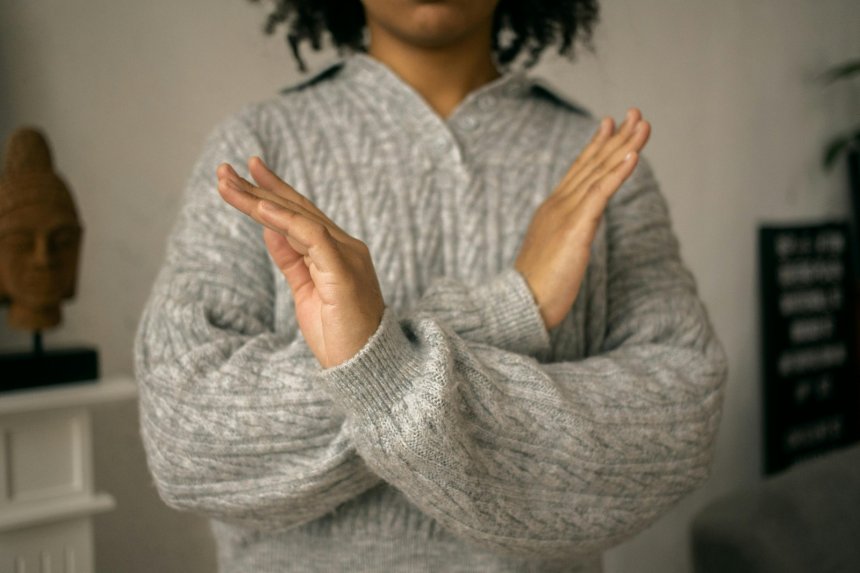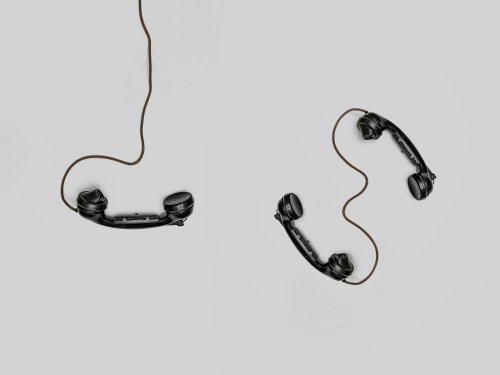Dating a Therapist: The Unexpected Truth About Loving Someone Who Reads Minds
Thinking about dating a therapist? Discover the unexpected realities, unique benefits, and challenges nobody talks about before you dive in.

You're considering dating a therapist, or maybe you've already fallen for someone who spends their days helping others navigate emotional landscapes. The idea carries a certain appeal. Someone trained in communication, emotional intelligence, and understanding human behavior sounds like the perfect partner, right? They'll always know what you're feeling, handle conflicts maturely, and bring professional-level insight to your relationship. The reality of dating a therapist is more nuanced than these fantasies suggest. Yes, there are unique benefits, but there are also challenges that catch most people off guard.

Understanding what you're actually signing up for helps set realistic expectations. Therapists aren't magical beings who have relationships figured out. They're people with specialized training who face the same struggles everyone does, plus some unique complications their profession creates. Dating a therapist means navigating the space between their professional skills and their human limitations, between their deep empathy and their need for emotional boundaries. It's a relationship dynamic unlike most others, and knowing what to expect makes all the difference.
What Makes Dating a Therapist Different
The most obvious distance is that your partner spends all day engaging in deep, emotionally intense conversations with strangers. By the time they get home, they've already listened to trauma, processed complex emotions, and held space for people in crisis. This affects how much emotional energy they have left for you, though not always in the ways you'd predict.
Another key difference is their heightened awareness of relationship dynamics. Therapists notice patterns, communication styles, and emotional responses that most people miss. This awareness can strengthen your relationship when used constructively, but it can also feel invasive when you sense them analyzing you during regular interactions. The line between helpful insight and unwanted psychoanalysis gets blurry in intimate relationships.
Their professional ethics and boundaries also shape how they approach relationships. Therapists are trained to maintain clear boundaries, respect autonomy, and avoid manipulative behaviors. These professional habits usually translate well into personal relationships, creating partnerships built on respect and clear communication. However, these same ethics mean they might struggle with normal relationship messiness that doesn't fit neat therapeutic frameworks.
The Unexpected Benefits of Dating a Therapist
Dating a therapist often means experiencing a level of emotional safety you've never encountered before. They create space for vulnerability without judgment, allowing you to share thoughts and feelings you might hide from others. This acceptance helps you show up authentically in ways that deepen intimacy and connection. You learn that expressing difficult emotions doesn't drive them away but actually strengthens your bond.

Communication in relationships with therapists tends to be remarkably clear. They've spent years learning to express thoughts precisely, ask clarifying questions, and ensure mature understanding. This skill prevents the misunderstandings that plague many couples. When conflicts arise, they often know how to de-escalate tension, identify the real issue beneath surface arguments, and work toward resolution rather than just winning fights.
Their emotional intelligence brings unexpected benefits to everyday life. They notice when you're stressed before you mention it, pick up on subtle mood shifts, and often understand what you need before you fully articulate it. This attunement can feel like being truly seen in ways previous partners never managed. They also tend to be exceptionally patient during difficult conversations, willing to sit with discomfort rather than demanding quick fixes.
The personal growth you experience while dating a therapist often surprises people. Their perspective helps you understand your own patterns and develop healthier coping mechanisms. This isn't them "therapizing" you, but rather the natural result of being close to someone who thinks deeply about human behavior and genuinely wants to support your well-being.
The Challenges Nobody Warns You About
The biggest surprise for most people is how emotionally exhausted therapists can be. They spend entire workdays absorbing other people's pain, holding space for trauma, and managing intense emotions. By evening, they might have nothing left to give. This doesn't mean they don't love you; it means their empathy tank is empty. You might find yourself feeling lonely or neglected even though you're in a relationship, especially during their busy seasons.
Another unexpected challenge is that therapists sometimes struggle to turn off their professional mode. You might share a frustration and receive reflective listening techniques instead of simple sympathy. They might ask probing questions when you just want them to agree with you. This therapeutic approach to normal conversations can feel clinical rather than intimate, making you feel more like a client than a partner.

The boundaries therapists maintain professionally sometimes extend into personal relationships in complicated ways. They might be uncomfortable with certain conflicts, resist vulnerability that feels too exposed, or maintain emotional distance that protects them professionally but creates coldness personally. Some therapists give so much at work that they unconsciously withhold emotionally at home to preserve their psychological resources.
Dating a therapist also means competing with their patients for attention and energy, though not in obvious ways. Emergency calls happen. Sessions run late. They carry emotional weight from difficult cases even when they're with you. Their commitment to client welfare is admirable, but it means you're never truly their only priority. Learning to accept this reality without resentment requires maturity that many people don't anticipate needing.
Common Myths About Dating Therapists
The biggest myth is that therapists have their own lives completely figured out. Many people assume that someone who helps others must have perfect mental health, flawless relationships, and no personal struggles. The truth is that therapists often have their own therapists, face the same anxieties and insecurities as everyone else, and sometimes struggle precisely because they're so aware of their patterns without always knowing how to change them.
Another myth is that dating a therapist means free therapy. Not only is this ethically inappropriate, but it's also fundamentally impossible. Therapists can't maintain objectivity with romantic partners. They're too emotionally invested, their boundaries are different, and the relationship dynamics make proper therapeutic work impossible. If you need therapy, they'll encourage you to see someone else, which is the professional and loving thing to do, even if it disappoints you initially.
People also assume therapists will always be emotionally available and understanding. While they might be better at these things than average, they're still human with limits. They have bad days when they're short-tempered. They get triggered by things connected to their own past. They sometimes lack patience or say the wrong thing. The professional skills they display at work don't automatically transfer perfectly to every personal interaction.
What Therapists Need From Their Partners
Therapists need partners who understand that emotional labor is their job, which means they sometimes need relationships that feel lighter and less intense. After spending hours holding space for others' deepest pains, they might want to watch silly shows, engage in surface-level conversation, or simply exist without processing heavy emotions. Respecting this need for emotional rest strengthens your relationship rather than indicating that something's wrong.
They also need partners who can be direct about needs and feelings. Therapists appreciate clear communication partly because it's efficient, but also because trying to decode unstated needs after doing that all day at work feels exhausting. If you're upset, say so directly. If you need something specific, ask explicitly. This directness might feel less romantic than hints and subtext, but it's what works best in relationships with therapists.

Respecting their professional boundaries is crucial. Don't ask them to share details about clients, pressure them to analyze your friends, or expect them to provide professional opinions about people in your life. These requests put them in uncomfortable positions that violate their ethics and create awkwardness they'd rather avoid. Trust that they keep work and personal life appropriately separated.
Understanding that they sometimes need to prioritize self-care over relationship time matters too. Therapists who don't protect their mental health burn out quickly, which serves no one. When they need solo time to recharge, take walks alone, or spend evenings doing something that has nothing to do with deep emotional connection, supporting these needs strengthens your relationship long-term.
Making a Relationship With a Therapist Work
Success in these relationships requires adjusting expectations around emotional availability. Your partner won't always have the energy for deep conversations or emotional processing, especially right after work. Learning to time important discussions for when they're genuinely present, typically on days off or after they'd had time to decompress, leads to better outcomes than demanding attention whenever you need it.
Developing your own support system becomes essential. You can't make your therapist partner your only emotional outlet. Cultivate friendships, consider getting your own therapist, and build a life that doesn't depend entirely on your partner for emotional support. This independence actually strengthens your relationship by removing pressure that no single person should have to carry.
Appreciating their unique perspective without expecting perfection helps too. Yes, they bring valuable skills to relationship challenges, but they're learning alongside you how to apply those skills to your specific dynamic. Give them grace when they don't handle everything perfectly, just as they likely give you grace for your struggles and learning edges.

Finding ways to connect that don't revolve around heavy emotional processing creates an important balance. Shared activities, physical affection, humor, and simple companionship matter just as much as deep conversations. Building a relationship that includes lightness and fun prevents it from feeling like extended therapy sessions that exhaust you both.
Conclusion
Dating a therapist brings both unexpected gifts and surprising challenges. The emotional intelligence, communication skills, and psychological awareness they bring to relationships can create extraordinary depth and connection. However, their emotional exhaustion, professional boundaries, and need for self-protection introduce complications that require understanding and patience. Neither the idealized fantasy nor the pessimistic warnings captures the full reality.
The truth is that dating a therapist works beautifully for some people and proves frustrating for others. It depends largely on your own needs, communication style, and capacity to understand the unique demands of their profession. If you value clear communication, can be direct about your needs, and understand that emotional availability has limits, you might thrive in this dynamic. If you need a partner who's always ready for a deep emotional connection or who can turn off their analytical mind completely, you might struggle.
Ultimately, dating a therapist means dating a whole person, not just their profession. Their training shapes them, but it doesn't define them entirely. Like any relationship, success depends on mutual respect, clear communication, realistic expectations, and genuine care for each other's well-being. The mind-reading abilities are more myth than reality, but the capacity for deep understanding and meaningful connection is very real for those willing to navigate both the benefits and the challenges this unique relationship dynamic brings.
Share
What's Your Reaction?
 Like
0
Like
0
 Dislike
0
Dislike
0
 Love
0
Love
0
 Funny
0
Funny
0
 Angry
0
Angry
0
 Sad
0
Sad
0
 Wow
0
Wow
0















